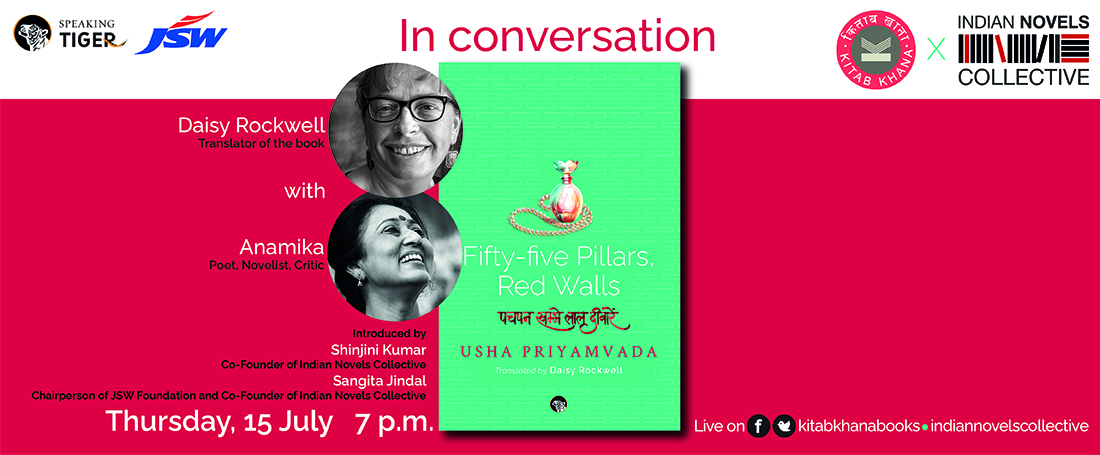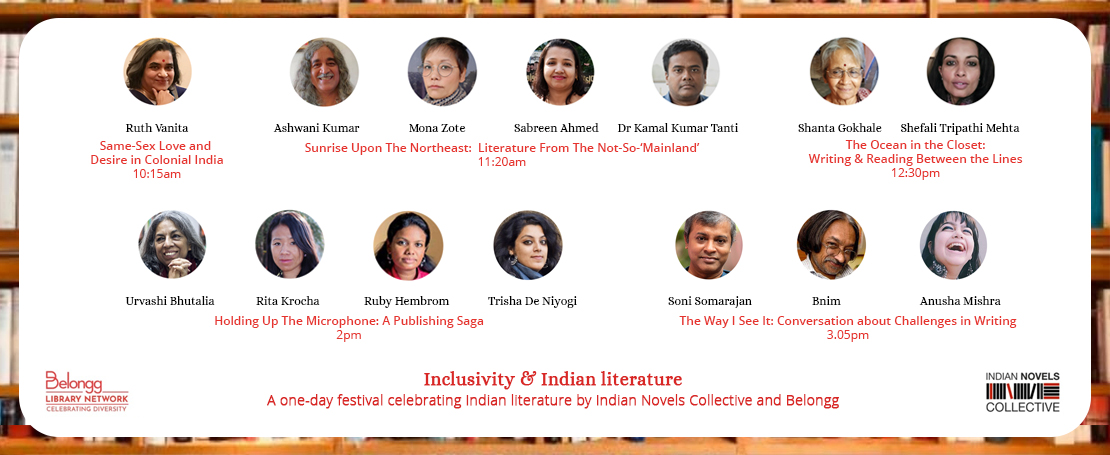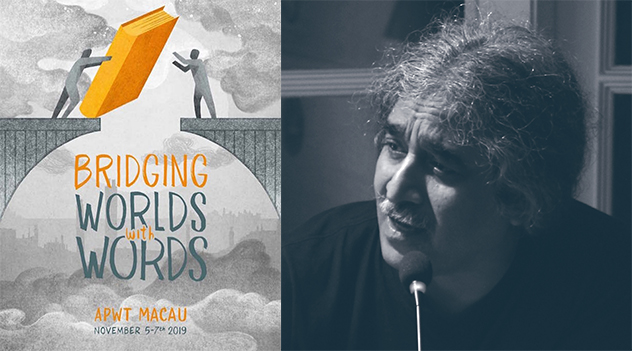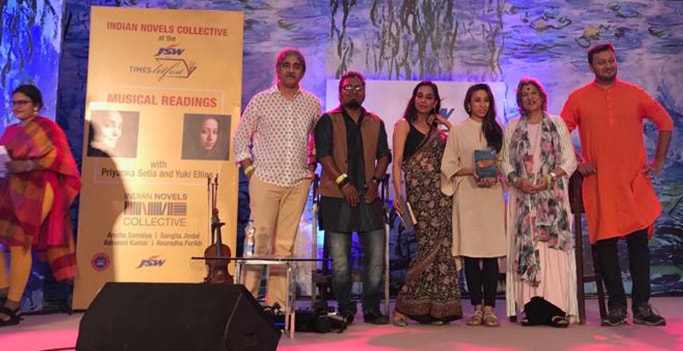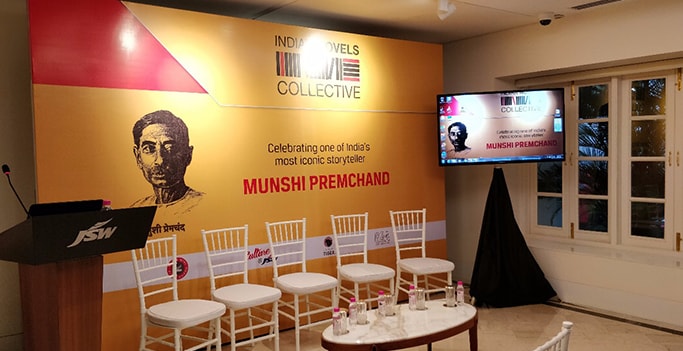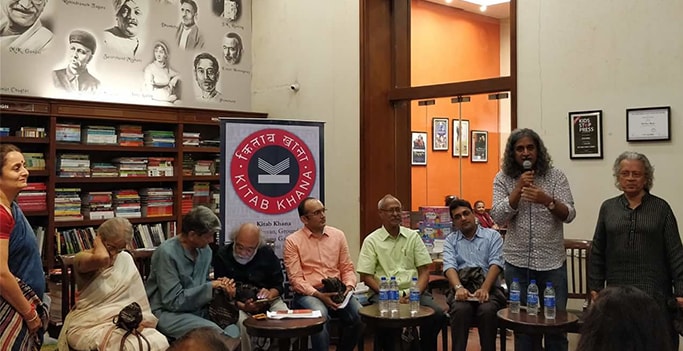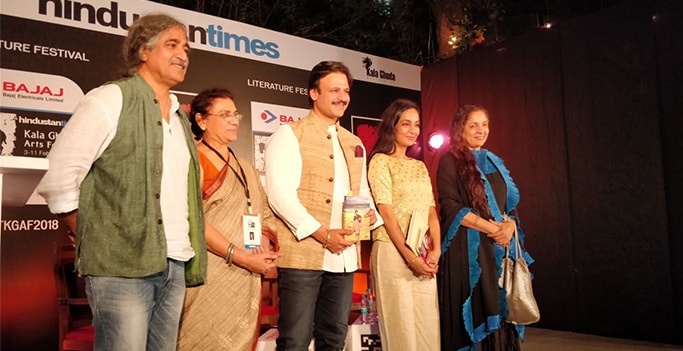Digital Launch of the translation of Vishram Bedekar’s only Marathi novel Ranaangan
At Indian Novels Collective, we have always believed in reaching out to people and contributing towards a thriving community of readers through translations of Indian language literature. An inclusive methodology, translation acts as a bridge between the polyphony of languages, literatures and cultures while nurturing lasting human connections.
Tuesday evening, we had the privilege of digitally launching one of our first translations—Vishram Bedekar’s only Marathi novel Ranaangan. Translated by Jerry Pinto as Battlefield, the book was published by Speaking Tiger in collaboration with Indian Novels Collective and the JSW Group. We sincerely thank the JSW group for supporting us in our endeavour to make this translation become a reality. The session was introduced by the Co-Founder of Indian Novels Collective, Prof. Ashwani Kumar and a video message by Sangita Jindal, Chairperson, JSW Foundation and Co-Founder of Indian Novels Collective. What followed was an illuminating, enriching and insightful conversation about the book in question, the do’s and don’ts of translation, and much more.
Calling it ‘an important human document and a prescient novel’ which continues to remain compellingly relevant in our time, translator Jerry Pinto mentioned, ‘the subtext of this novel is the rise of fascism and the way in which each one of us will have to choose how we will live in a world that is increasingly fascist.’ A love story set in a ship, the book etches out the tumultuous political scenario of the imminent Second World War that is working its way out in the larger world, as opposed to the tender, interpersonal relationship between two individuals.
Delving deeper into what makes Ranaangan a timeless classic of Marathi literature, Shanta Gokhale enlightened us with the fascinating backstory of the pathbreaking book that introduced a new form of novel writing through its multi-layered narrative. Bedekar spent the whole of August 1939 writing this novel and had it published at the end of the month anonymously. Gokhale further added that Bedekar’s experiences of returning from London in a ship dictated the form of the novel, and ‘he wrote it in an intense rush of emotion of his response to the politics of the time.’
No book is an isolated event, and neither can be its process of translation. In the literary universe, literary texts remain connected through the invisible threads of readers’ memories and other reading experiences that defy the usual parameters of time and space while invoking the interplay of multiple associations simultaneously. The discussion around the translation of Ranaangan made way for interesting reflections on the thought processes and the tangible act involved in translating literary texts and the ‘difficult journey of translating the untranslatable’.
Offering a lens into the intimate yet volatile nature of the author-translator relationship, the two stalwarts also talked about their mutual experiences while Shanta was translating Jerry’s award-winning novel Em and the Big Hoom from English into Marathi. While Jerry said that he believes in remaining faithful to the source text during translating, Shanta shared a different perspective. She mentioned that she is currently enjoying taking liberties in translating a book, which also happens to be one of the significant works of Marathi literature, underlining how a translator might also have to step into the shoes of an editor according to the demands of the text. We cannot wait to lay hands on her new release and eagerly hope that it releases soon!
Jerry Pinto also read a short passage from Battlefield, and Prof Ashwini Kumar shared how our late mentor and eminent writer Kiran Nagarkar had insisted on a translation of the book while specifying that no one barring Pinto should attempt the translation. As the session drew to a close, Pinto emphatically underlined how translation requires the active support of readers to sustain itself. Concluding with one of his quotes that will resonate with all lovers of translated literature and stay with us for the longest time, ‘translation rewrites your world, it reintroduces you to your past, it shows you your city again, and it brings you to a place. You can revisit those places in a way that has been denied to you if you just stay with one language.’
Get a copy of the translation from your nearest bookstore. We recommend Kitab Khana, Mumbai which is shipping across the country.
